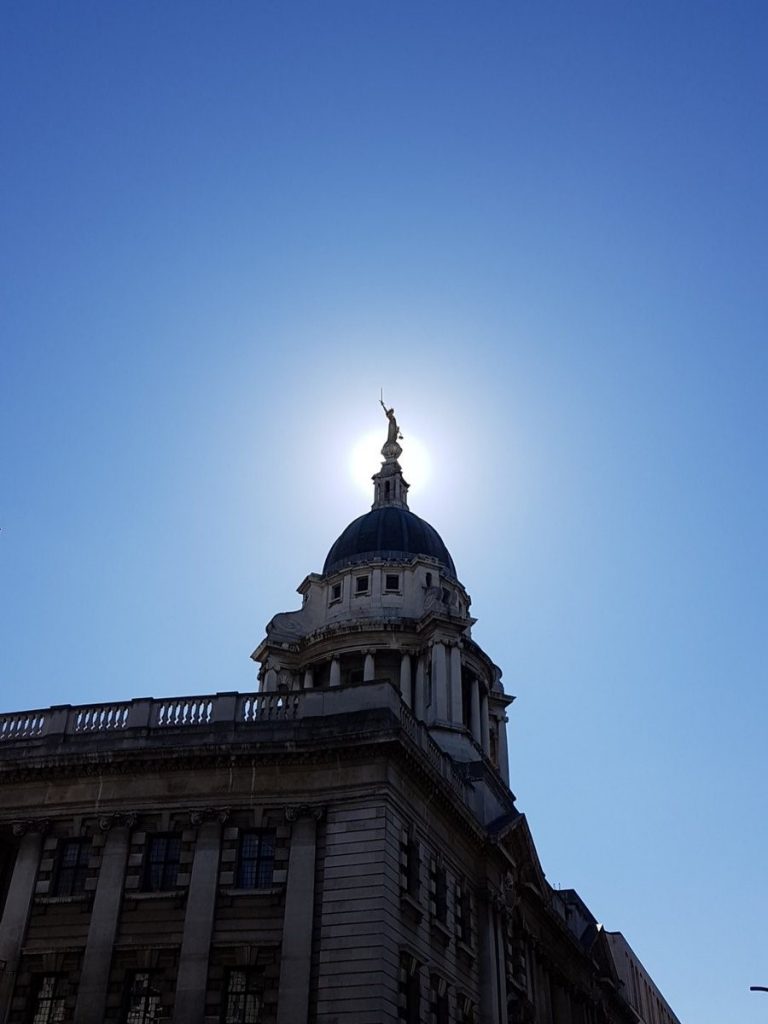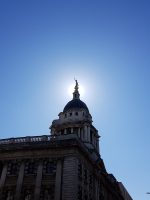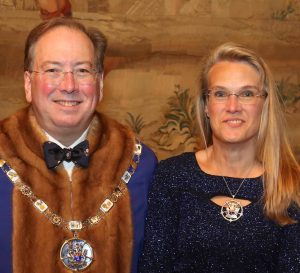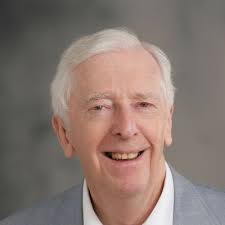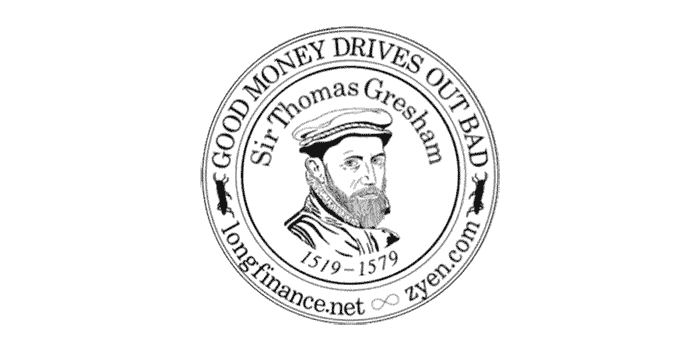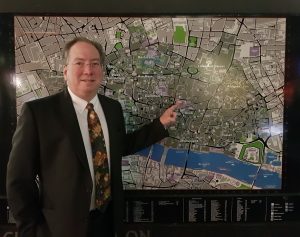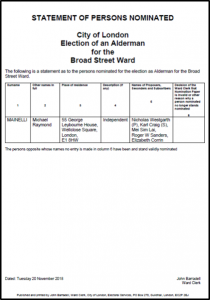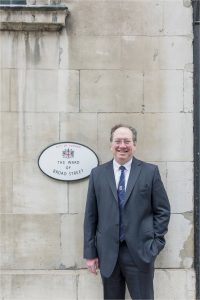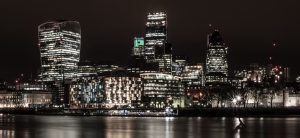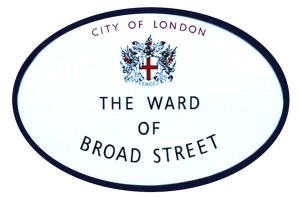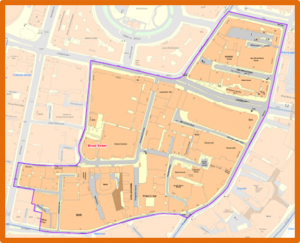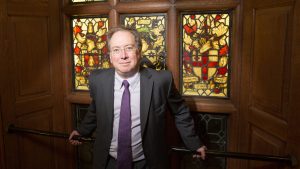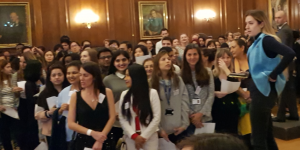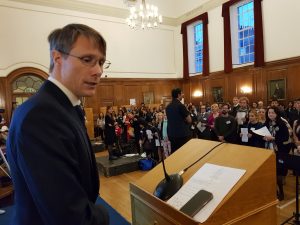Re-Elect Professor Michael Mainelli for Alderman of Broad Street Ward
“Bright Lights, Better City”
My campaign motto highlights the City’s brainpower, attractions, and traditional freedoms.
I am honoured to have the support of our three Common Councilmen, Deputy John Bennett, Chief Commoner John Scott JP, and Chris Hayward.
A former Chairman (2004-2005) of the Broad Street Ward Club, Immediate Past Master of the Worshipful Company of World Traders, Freeman of the Watermen & Lightermen, and an Honorary Liveryman of the Furniture Makers and Water Conservators, Michael has worked in the Ward since 1984, walking the length of the Ward every day to and from home in Wapping.
“Michael has achieved much in his first term as Alderman, working hard and well with our Civic Team. We urge you to return him to work with us in the future.”
Chief Commoner John Scott JP
Please give me, Michael Mainelli, your vote by postal ballot or by voting in person on
Thursday, 13 December 2018
Polling Station
Carpenters’ Hall, 1 Throgmorton Avenue,
London EC2N 2JJ
Polls are open from 8:00am to 8:00pm
The pre-election Wardmote will be held at Carpenter’s Hall at midday on Wednesday, 12 December 2018
www.broadstreetward.org.uk
@broadstreetward
I walk through the Ward every day, to and from work, and would be delighted to discuss Ward business.
Contact me by telephone 020 7562-9562, or via email michael_mainelli@zyen.com, or by post to Z/Yen Group, 41 Lothbury, London EC2R 7HG. For more campaign details see www.mainelli.org and @mrmainelli.
Aldermen and Common Councilmen are the unpaid volunteers who keep our community working. In tough times for the City, with fierce international competition among financial centres, increasing uncertainty in financial services, more regulation, rising costs, and tight budgets, these volunteers are vital.
As the creator of the Global Financial Centres Index, I know what makes cities work. Together we can make a success of our neighbourhood with a manifesto of:
- safe streets – traditional policing, crime prevention, refuse collection, lighting, sensible licensing, and traffic enforcement;
- modern infrastructure – water, electricity, ICT, and transportation links with robust defences against environmental damage and terrorism;
- vibrant economy – fostering new and old businesses by setting policy and regulation that encourage new markets in the City and future success for the 483,000 of us already working here;
- community spirit – ensuring excellent services for those in need, while enhancing intellectual and cultural life;
- competitive attractiveness – lobbying central government on better policies for education, taxation, and business, as well as promotion, to keep the City foremost in global finance, technology, and media.
We have made great progress in Broad Street Ward in three major areas:
- Refurbishment and all-but-pedestrianisation of Austin Friars – completed on budget and on time. We have plans for more social and community activities in this area. Please do look out next year for a street market.
- On-site shredder vans – an outright ban seems a ways off, but we have reduced these vehicles to almost the minimum.
- Communications – we now have high-speed broadband throughout the City and our website is in its fifth year. @broadstreetward tries to ‘follow’ all businesses and people in the Ward, so please do ‘follow’ us by return!
Broad Street’s traditional mascot is the famous panto cat of its Alderman, Dick Whittingon (1354-1423).
My work on your behalf over the past five years has consisted of:
- Ambassadorial – representing the City and Ward, including accompanying and receiving trade and investment delegations to and from Asia, Europe, the Americas, Africa, and Australasia. A number of businesses in finance and technology have located operations here thanks to such efforts.
- Governance – promoting our interests in the Corporation as a member of the Court of Aldermen and Common Council, as well as Finance, Markets, Planning & Transportation, Standards, and Gresham Committees.
- Ward Support – helping develop our City Giving Day contributions and Ward Mights, presenting in companies and schools, organising tours of the Ward, promoting new Freemen (ask if you’d like to become one), as well as being President of Broad Street Ward Club.
Professor Michael Mainelli FCCA FCSI (Hon) FBCS, Executive Chairman, Z/Yen Group
A qualified accountant, securities professional, computer specialist, and management consultant, educated at Harvard University and Trinity College Dublin, Michael gained his PhD at London School of Economics where he was also a Visiting Professor. He began his career as a research scientist, later becoming an accountancy-firm partner with BDO Binder Hamlyn and a director of Ministry of Defence research. During a spell in merchant banking with Deutsche Morgan Grenfell, he co-founded Z/Yen, the City of London’s leading commercial think-tank. He has led Z/Yen from creating smart ledgers (aka blockchains) through the Financial £aboratory, Taskforce 2000, Global Financial Centres Index, Global Green Finance Index, and Global Intellectual Property Index.
In 2005, Michael initiated Long Finance’s London Accord, an agreement among 65 investment research teams to work together on environmental, social, and governance issues, which includes Ward firms such as Canaccord Genuity, ING, and Deutsche Bank. Michael’s civic work includes serving as Emeritus Professor of Commerce, Fellow & Trustee at Gresham College – the City’s ‘Tudor Open University’; Almoner (governor) for Christ’s Hospital – the City’s charitable boarding school; Trustee of Morden College; former London Waterways Commissioner; and Patron to several charities, such as CARA and Sea-Change Sailing Trust.
Michael is a non-executive director of two listed firms and the United Kingdom Accreditation Services overseeing UK laboratories and quality standards. He was British Computer Society Director of the Year in 2005 and given Hons by the Chartered Institute for Securities & Investment in 2018. His third book, The Price of Fish: A New Approach to Wicked Economics and Better Decisions, won the 2012 Independent Publisher Book Awards Finance, Investment & Economics Gold Prize.
Promoted by Ms Ruby Sayed CC, One Pump Court Chambers, Elm Court, Temple, London EC4Y 7AH,
on behalf of Professor Michael Mainelli, Z/Yen Group Limited, 41 Lothbury, London EC2R 7HG.
